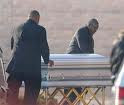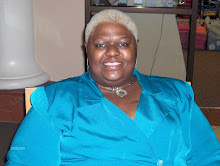Professional services, In- home arrangement, Removal, Embalming,Register book,
100 Black & white programs, 50 acknowloedgement cards, 20 Gauge Non-sealer casket
24 hrs. Mulitple Locations
Monday - Friday Daytime only
some restrictions may apply
Thursday, January 7, 2010
Cremation with a service $ 2,600.00
Professional service* In-Home arrangements* Removal * Embalming * Hearse* Register book* 100 Black & white programs * 50 Acknowledgement cards * Container Chapel or service
24 Hrs. service muiltple Locations
Monday-Friday Daytime only
some restictions may apply
24 Hrs. service muiltple Locations
Monday-Friday Daytime only
some restictions may apply
Direct Cremation $1,250.00
24 Hrs. service multiple Locations
Monday-Friday Daytime only
some restictions may apply
Monday-Friday Daytime only
some restictions may apply
Friday, December 11, 2009
Grief Education
The loss of a loved one can take it's toll on you both physically and mentally.You may experience a rollercoaster of emotions. One moment may find you incapacited by grief,whereas in the next you may feel almost normal. Anger,fear,guilt,and panic are just a few of the emotions you may experience.This is completely normal.
The physical effects of grief can include sleepesness,excessive fatigue,headaches,general malaise,intestinal upsets,and dizziness.During periods of extreme stress such as grief,it is crucial that you try to eat regulary and to rest,since stress can suppress your immune system,making you more prone to illness.
Your grief reaction and subsequent recovery can depend on the qualiy of your relationship to the deaceased,your caspacity to handle stress,and the type of support network that you have.If your relationship was strained or you have never experienced the loss of a loved one,your grief may be overwhelming.
Do not be afraid to seek the support of friends and family.They will want to help but might not be sure how.All too often,those who are grieving keep their feelings to themselves and feel that others will be able to anticipate their needs.As difficult as it may seem,it may be necessary for you to take the initiative.
Talk to your funeral director.Funeral directors are listeners,advisors,and supporters.They assist those who are grieving every day. Many funeral homes offer aftercare programs,which are programs designed to help you through the initial stages of grief.
Your funeral director can also recommend local support groups and reading materials that can help you understand and cope with your grief.Even if yo weren't directly involved with the funeral arrangements,you can contact a funeral home.Family funeral homes are committed to the communities they serve and willingly help those in need.
The physical effects of grief can include sleepesness,excessive fatigue,headaches,general malaise,intestinal upsets,and dizziness.During periods of extreme stress such as grief,it is crucial that you try to eat regulary and to rest,since stress can suppress your immune system,making you more prone to illness.
Your grief reaction and subsequent recovery can depend on the qualiy of your relationship to the deaceased,your caspacity to handle stress,and the type of support network that you have.If your relationship was strained or you have never experienced the loss of a loved one,your grief may be overwhelming.
Do not be afraid to seek the support of friends and family.They will want to help but might not be sure how.All too often,those who are grieving keep their feelings to themselves and feel that others will be able to anticipate their needs.As difficult as it may seem,it may be necessary for you to take the initiative.
Talk to your funeral director.Funeral directors are listeners,advisors,and supporters.They assist those who are grieving every day. Many funeral homes offer aftercare programs,which are programs designed to help you through the initial stages of grief.
Your funeral director can also recommend local support groups and reading materials that can help you understand and cope with your grief.Even if yo weren't directly involved with the funeral arrangements,you can contact a funeral home.Family funeral homes are committed to the communities they serve and willingly help those in need.
Wednesday, December 9, 2009
Coping with Grief during the Holiday
Halloween barely passes before stores stock their shelves with holiday decorations. Christmas carols echo through shopping malls,and the first of the holiday commercials hits the airwaves. If you've lost a loved one, these can be stark reminders that the holidays won't be the same.
Whether your loved one died recently or decades ago, the holidays bring forth powerful memories that may trigger your grief. If the person died on or near a holiday, the two events are forever linked and may be particularly painful,especially if you have unresolved feelings about the lost relationship.
When trying to cope with grieve, It's important to understand that grief is cumulative. We don't experience a loss,move through the emotional stage,then emerge on the other side. Grief is like adding rocks into a backpack. Each loss, whether it's death,divorce or a move away from family and friends, is packed in like another rock; some bigger than others. When grief is unresolved, one of these emotional rocks may come tumbling out of the backpack when we least expect it. It may come out inappropriately, in the form of road rage,substance abuse or lashing out verbally or physically.
This holiday season, if the first christmas card you open it rips a rock from your backpack,use that opportunity to work through your feelings. Don't just shove it back in the pack. Here are some tips to help you cope.
Do:
.Expect to have some pain.When the feelings come,let them.
.Accept a few invitations to be with close family and friends.choose the ones that sound most appealing at the time and avoid the ones that feel more like obligation.
.Talk about your feelings.Let people know if you're having a tough day.
.Incorporate your loved one into the holidays.
.Share your favorite stories over dinner.
.Make a toast or light a candle in rememberance.
.Make a donation in his or her name.
.Help others:
Take a meal to a homebound couple.
Volunteer in a shelter or soup kitchen.
Adopt a family to buy presents or food for.
.Modify or make new traditions if it feels right.just remember to include others who are grieving,especially children, in the decision.
.If the idea of holiday shopping overwhelms you, buy gifts online or through catalogs.
.Replace negative thoughts with positive ones.
.Prepare yourself for January. Sometimes the after fact of the holidays can bring more sadness than the holidays themselves.
Don't:
.Don't hide your feelings from children in an effort to be strong for them or protect them. You'll only be teaching them to deny their own feelings.
.Don't isolate yourself.Although you may not feel much like celebrating,accept a few invitations.
.Don't accept every invitation or throw yourself into work in an effort to keep busy.
It may only add more stress.
.Don't expect to go through defined stages of grief. "Every person is different and every relationship is unique,
.Don't act as if your loved one never lived.
.Don't be afraid to cry. "Crying is like the valve on a pressure cooker.It lets the steam out.
If someone you know is grieving:
.Encourage him or her to talk about their feelings.Listen to them. 98% of people who have recently lost someone want to talk about the person who died.
.Let them cry.
.Don't pretend their loved one didn't die- it's okay to say the deceased's name.
.Don't say things like:
"At least their not suffering anymore"
"Their in a better place"
"I know you'll miss them"
"I know how you feel"
Resources:
Grief Recovery Institute
www.grief-recovery.com
(818) 907-9600
Holiday Hotline:(800) 445-4808
Whether your loved one died recently or decades ago, the holidays bring forth powerful memories that may trigger your grief. If the person died on or near a holiday, the two events are forever linked and may be particularly painful,especially if you have unresolved feelings about the lost relationship.
When trying to cope with grieve, It's important to understand that grief is cumulative. We don't experience a loss,move through the emotional stage,then emerge on the other side. Grief is like adding rocks into a backpack. Each loss, whether it's death,divorce or a move away from family and friends, is packed in like another rock; some bigger than others. When grief is unresolved, one of these emotional rocks may come tumbling out of the backpack when we least expect it. It may come out inappropriately, in the form of road rage,substance abuse or lashing out verbally or physically.
This holiday season, if the first christmas card you open it rips a rock from your backpack,use that opportunity to work through your feelings. Don't just shove it back in the pack. Here are some tips to help you cope.
Do:
.Expect to have some pain.When the feelings come,let them.
.Accept a few invitations to be with close family and friends.choose the ones that sound most appealing at the time and avoid the ones that feel more like obligation.
.Talk about your feelings.Let people know if you're having a tough day.
.Incorporate your loved one into the holidays.
.Share your favorite stories over dinner.
.Make a toast or light a candle in rememberance.
.Make a donation in his or her name.
.Help others:
Take a meal to a homebound couple.
Volunteer in a shelter or soup kitchen.
Adopt a family to buy presents or food for.
.Modify or make new traditions if it feels right.just remember to include others who are grieving,especially children, in the decision.
.If the idea of holiday shopping overwhelms you, buy gifts online or through catalogs.
.Replace negative thoughts with positive ones.
.Prepare yourself for January. Sometimes the after fact of the holidays can bring more sadness than the holidays themselves.
Don't:
.Don't hide your feelings from children in an effort to be strong for them or protect them. You'll only be teaching them to deny their own feelings.
.Don't isolate yourself.Although you may not feel much like celebrating,accept a few invitations.
.Don't accept every invitation or throw yourself into work in an effort to keep busy.
It may only add more stress.
.Don't expect to go through defined stages of grief. "Every person is different and every relationship is unique,
.Don't act as if your loved one never lived.
.Don't be afraid to cry. "Crying is like the valve on a pressure cooker.It lets the steam out.
If someone you know is grieving:
.Encourage him or her to talk about their feelings.Listen to them. 98% of people who have recently lost someone want to talk about the person who died.
.Let them cry.
.Don't pretend their loved one didn't die- it's okay to say the deceased's name.
.Don't say things like:
"At least their not suffering anymore"
"Their in a better place"
"I know you'll miss them"
"I know how you feel"
Resources:
Grief Recovery Institute
www.grief-recovery.com
(818) 907-9600
Holiday Hotline:(800) 445-4808
How to plan a funeral
Planning a funeral is something most of us will have to do at one point in our lives, but how do you do? Are you getting good value for your money? What do you really need?
There are two things to remember in planning a funeral. First, no one is going to charge you for asking questions. The second thing to remember is that you are in charge.
When a loved one dies,grieving family members and friends are often confronted with dozens of decisions about the funeral-all of which must be made quickly and often under great emotional duress. What kind of funeral should it be? What funeral home should you use? Should you bury or cremate the body,or donate it to science? What are you legally required to buy? What other arrangements should you plan? And as callous as it may sound, how much is it all going to cost?
There are two stages to arranging a funeral. In the first stage,work with your local funeral director to explore the options(you can also find information on this website.) Once you've made your choices and arranged the ceremony,the second step is to arrange the financing.
Planning a Funeral Ceremony
1. Determine the type of service.
.large or small ceremony
.Traditional ceremony or creative expression
Today,many families plan funerals that reflect the contributions accomplishments of the deceased.
2. Determine the final resting place. Do you want a cemetery plot? mausoleum?
Do you want to be cremated? If you choose cremation, what do you want done with your ashes?
Weighing the options in advance is better than making a rushed decision on this personal topic. What best fits your lifestyle and feelings?
With the help of your family-owned funeral home, funeral director, oyu can create a funeral that will be a personal and dignified tribute
There are two things to remember in planning a funeral. First, no one is going to charge you for asking questions. The second thing to remember is that you are in charge.
When a loved one dies,grieving family members and friends are often confronted with dozens of decisions about the funeral-all of which must be made quickly and often under great emotional duress. What kind of funeral should it be? What funeral home should you use? Should you bury or cremate the body,or donate it to science? What are you legally required to buy? What other arrangements should you plan? And as callous as it may sound, how much is it all going to cost?
There are two stages to arranging a funeral. In the first stage,work with your local funeral director to explore the options(you can also find information on this website.) Once you've made your choices and arranged the ceremony,the second step is to arrange the financing.
Planning a Funeral Ceremony
1. Determine the type of service.
.large or small ceremony
.Traditional ceremony or creative expression
Today,many families plan funerals that reflect the contributions accomplishments of the deceased.
2. Determine the final resting place. Do you want a cemetery plot? mausoleum?
Do you want to be cremated? If you choose cremation, what do you want done with your ashes?
Weighing the options in advance is better than making a rushed decision on this personal topic. What best fits your lifestyle and feelings?
With the help of your family-owned funeral home, funeral director, oyu can create a funeral that will be a personal and dignified tribute
Monday, December 7, 2009
Meaningful Funerals
A meaningful funeral is a personalized funeral,one that is a tribute to the life that's been lived, not the death that's occured. Families better cope with pain of death by involving themselves in the planning of meaningful tributes to their loved ones.When you are planning a funeral,personalizing the ceremony should be a priority. Think about the special qualities of the person who died and what he or she meant to others. consider his or her passions,hobbies,pastimes,likes,dislikes. How can you capture this unique life. Be as creative as you,together with your family,friends,funeral director,and the person who will lead the service,brainstorm how to remember and honor the person who died.
Subscribe to:
Comments (Atom)







